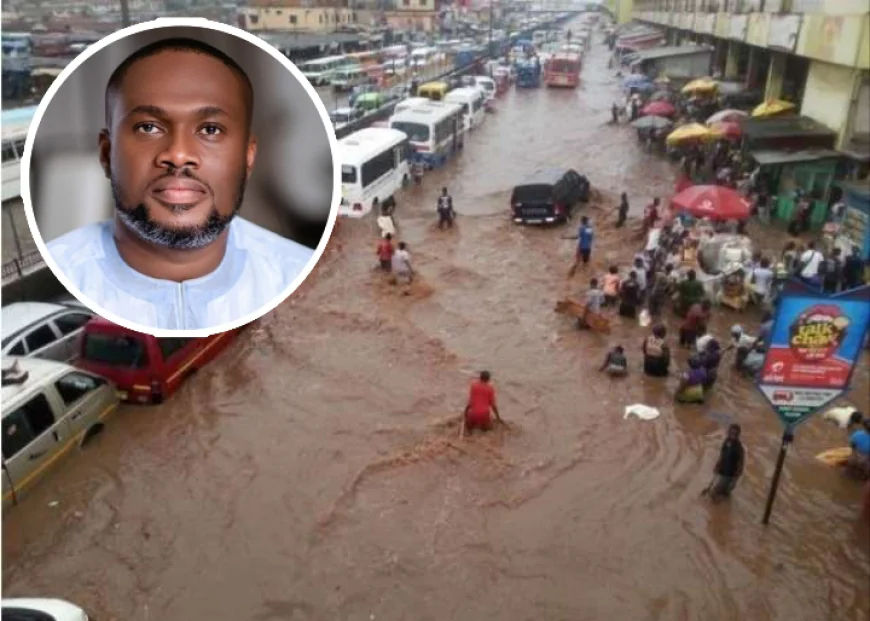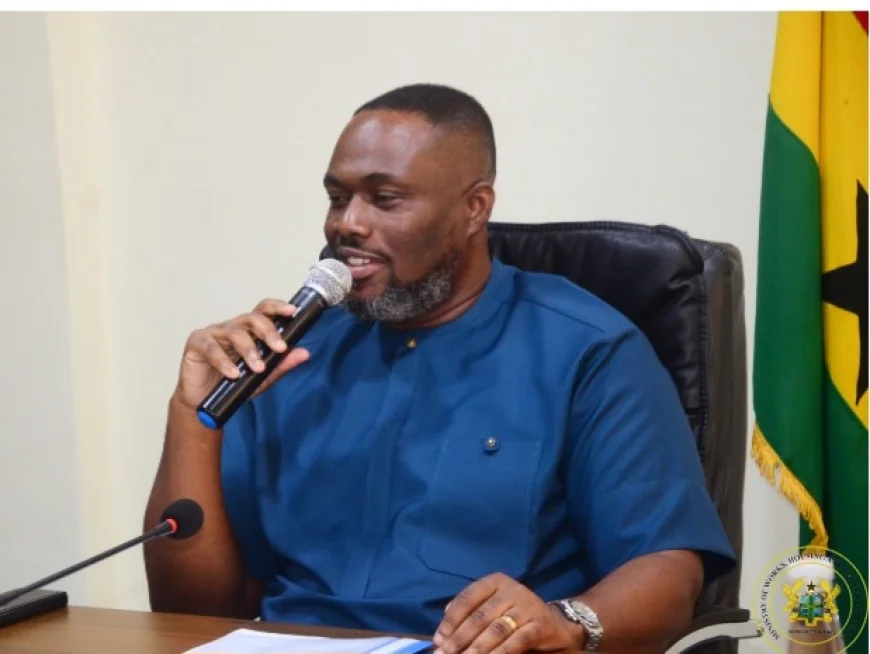Ghana Needs $6 Billion to Tackle Flooding Crisis – Government Announces Bold Plan
Minister of Works and Housing tells Parliament that a nationwide flood control strategy is being developed, with funding support to be sought from private sector and global partners

The Government of Ghana has revealed that it requires $6 billion to implement a comprehensive national flood control programme aimed at tackling the recurring and devastating impact of floods across the country.

Delivering a statement on the floor of Parliament on Wednesday, Minister for Works and Housing, Kenneth Gilbert Adjei, described flooding as a national emergency that requires urgent and sustained investment.
“The ministry estimates that the investment of approximately six billion dollars is needed to implement comprehensive flood control measures across the country,” the minister stated.
He added that the government is exploring Public-Private Partnerships (PPP), climate financing, and support from international development partners to fund the initiative, which is aimed at transforming Ghana into a flood-resilient and climate-smart nation.
■ Flooding Worsens Despite Years of Interventions
Ghana has suffered decades of destructive floods, particularly in urban centres like Accra, Kumasi, Tamale, and Sekondi-Takoradi, where poor drainage systems, unplanned settlements, and rapid urbanisation have compounded the challenge.
Despite various government interventions, including periodic desilting projects and emergency evacuations, the issue persists, resulting in loss of lives, destruction of property, and displacement of communities during heavy rains.
■ NADMO Struggles to Respond Amid Resource Constraints
In a related contribution to the parliamentary session, Minister for the Interior, Muntaka Mohammed-Mubarak, expressed concern over the inadequate logistical capacity of the National Disaster Management Organisation (NADMO) to respond to such disasters effectively.
“The challenges are enormous… We have put in measures to ensure that we procure the necessary equipment and logistics to staff NADMO’s warehouses,” he told lawmakers.
He assured that the government is in discussions with the Ministry of Finance to release critical funds to equip NADMO and implement its contingency plan before the peak of the rainy season.
■ A Call for Urgent Action
Experts have repeatedly called for long-term planning, proper waste management, enforcement of zoning regulations, and robust infrastructure to address Ghana’s flood problem. With the $6 billion master plan, the government hopes to shift from emergency response to preventative resilience.
As Ghana enters the heart of the rainy season, citizens across flood-prone regions will be watching closely to see if this ambitious commitment is followed by swift, transparent, and decisive action.


